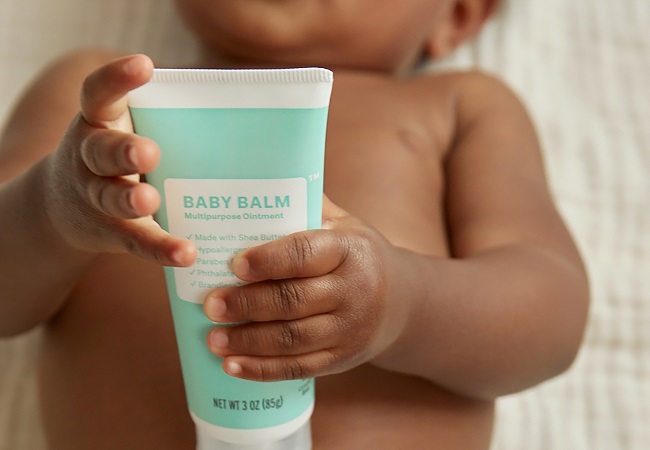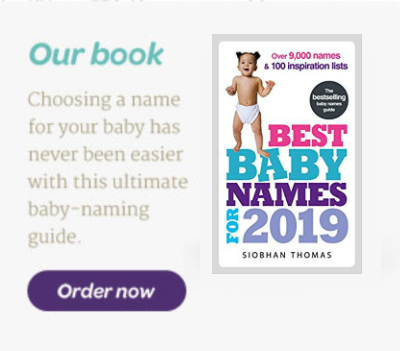By Dr Lin Day

There are lots of different baby classes to think about when you have a little one and it can feel a bit overwhelming.
While baby massage may sound a bit strange, it’s actually scientifically proven to have loads of fabulous health benefits for your baby. It can even improve sleep (every parents biggest worry!).
In her latest blog, Dr Lin Day, renowned parenting expert and founder of hugely successful national franchise Baby and Toddler Sense, explains more about the importance of phsyical affection and touch for babies…
Babies have a biological need for close physical affection. Nothing is more important to their emotional, physical and intellectual development than a comforting cuddle or a loving touch. What’s more, babies who are cuddled, stroked and caressed are more likely to grow up to be loving social beings. They also gain independence and confidence, which leads on to an important milestone by the end of the first year: the ability to play alone.
Babies who are regularly held and touched also gain weight faster, develop stronger immune systems, crawl and walk sooner, sleep more soundly and cry less than babies deprived of close physical contact. Studies have also shown that children who are given plenty of physical affection show more task-oriented behaviour too, less solitary play and less aggression at school. In the absence of touch stimulation, release of important growth hormones may be inhibited in all parts of the body as well as the brain, liver and heart.
Touch therapies
Many of the touch therapies that have been practised for thousands of years in cultures across the world are now gaining acceptance as intervention or therapeutic therapies. Skin-to-skin and massage for example, can produce positive benefits for babies with colic and constipation, respiratory and sleep problems. They also stimulate nerves in the brain that aid digestion and are particularly beneficial for babies with feeding difficulties, and for infants with health problems.
Feldman et al. (2014) found that premature infants gained from skin-to-skin contact with their mothers 10 years after birth. Specifically, researchers compared standard incubator care to skin-to-skin contact, which uses the mother’s body heat to keep the baby warm. They found that at 10 years of age, children who received maternal contact as infants, showed more organised sleep, better neuroendocrine response to stress, more mature functioning of the autonomic nervous system, and better cognitive control.
Massage
The positive effects of massage have also been noted in children with Attention Deficit Hyperactivity Disorder (ADHD), autism, Down syndrome, dermatitis, stress and immune function disorders and in adults with Chronic Fatigue Syndrome, Parkinson’s disease and osteoarthritis. Babies with Down syndrome have improved muscle tone and show a better performance on motor tasks following regular massage.
Children with autism also benefit from massage, probably because it is predictable. Massage has an important emotional element for parents too because it provides an opportunity for them to get involved in a warm and loving way with their baby. It can also help parents who have been struggling to bond with their babies in the early stages of life.
Through baby massage, the muscles receive a good circulation of blood, which strengthens them for movement. The circulatory system in the hands and feet of the newborn is undeveloped: massage helps them to become warm. Massage also opens the pores and encourages the release of sebum, which prevents microorganisms from entering the baby’s body. Babies who are regularly touched have a more stable heart and breathing rate and are often less tense and irritable.
The other key benefits of baby massage include:
- Decreased stress and anxiety
- Improved circulation
- Restful sleep
- Improved feeding patterns
- Increased alertness
- Reduced pain in teething
- Increased peak air flow in babies and children with asthma
- Improved muscle flexibility and motor function
- Increased intellectual development
- A happier, healthier baby
Babies crave close contact
Some psychologists believe that one of the reasons why babies crave close contact is because of the need to recreate conditions experienced before birth. Techniques that mimic a womb-like environment include bathing, hand containment and skin-to-skin contact. Cuddling has a similar effect and reminds the baby of the sensation of being constantly rocked by the amniotic fluid in the womb.
Physical contact positively influences the development of the brain and deepens the relationship between mother and child. It also spells love, involvement, care, security and protection. Without it, they will not grow and develop into normal, happy, healthy children or adults.
The most important guideline in touching young children is in respecting their likes and dislikes. A tickling or playful activity must be ceased immediately and without question if the child squirms, winces or cries.
Strengthening the bond
There are also a number of other benefits to baby massage which support a child’s learning and development as well as therapies such as baby hand, foot and ear reflexology, baby yoga, sensory activities, bonding and attachment techniques, back to womb containment and also regular communication such as singing, listening to music and baby signing.
Baby massage is certainly one sensory delight that really strengthens the bond between parent and child because it provides an opportunity for parents to express their love. Babies usually feel very relaxed afterwards and sleep better. The skin-to-skin contact also has significant benefits on relationship building between the parent and baby. It also reduces the baby’s stress levels, builds up resistance to infection and can get breastfeeding off to a good start.
Dr Lin Day (PhD, M. Phil, PGCE, FETC, BSc, Dip Ed), is one of the UK’s leading parenting experts and a renowned author within the field of childcare and education. She is also the founder and director of the multi-award winning national and international baby and toddler activities, Baby Sensory and Toddler Sense.


